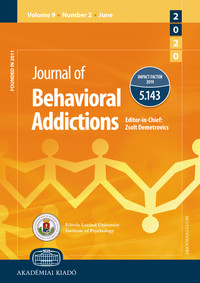Psychometric properties of the Maladaptive Daydreaming Scale in a sample of Hungarian daydreaming-prone individuals
Psychometric properties of the Maladaptive Daydreaming Scale in a sample of Hungarian daydreaming-prone individuals
Author(s): Alexandra Sándor, Ákos Münnich, Judit MolnárSubject(s): Behaviorism
Published by: Akadémiai Kiadó
Keywords: Maladaptive Daydreaming Scale; adaptation; absorption; childhood trauma; Hungarian sample
Summary/Abstract: Objectives: The aim of the study is to adapt the Maladaptive Daydreaming Scale (MDS-16) to Hungarian, assess its psychometric properties, and establish its cut-off score. In addition, the relationship between maladaptive daydreaming and adverse childhood experiences was examined. Method: Study participants were recruited online via snowball sampling. Based on three inclusion criteria (self-identified MDer status; control over daydreaming; frequency of daydreaming) 160 out of 494 respondents were included in the study. Results: Our results confirm both the high reliability and convergent validity of the questionnaire. The cut-off score of 60 percentiles can reliably discriminate between excessive and normal daydreamers. The general applicability of the MDS-16-HU was tested and confirmed by the use of the Adverse Childhood Experience Questionnaire (ACE-10), a short, self-report questionnaire. Its results showed that certain types of childhood adversities increase the likelihood of maladaptive daydreaming. Conclusions: The instrument is a valid and reliable measure, therefore it can serve as a useful screening tool in clinical practice. In addition, our findings highlighted the role of childhood adversities in the aetiology of maladaptive daydreaming.
Journal: Journal of Behavioral Addictions
- Issue Year: 9/2020
- Issue No: 3
- Page Range: 853-862
- Page Count: 10
- Language: English

